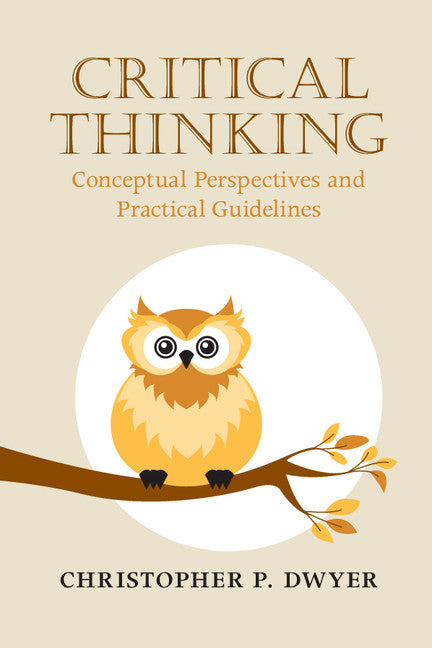Freshly Printed - allow 8 days lead
Couldn't load pickup availability
Critical Thinking
Conceptual Perspectives and Practical Guidelines
This book discusses a modern conceptualisation of critical thinking - one that is commensurate with the exponential increase in the annual output of knowledge.
Christopher P. Dwyer (Author)
9781316509951, Cambridge University Press
Paperback / softback, published 9 May 2017
274 pages
22.8 x 15.2 x 1.5 cm, 0.41 kg
'Critical Thinking belongs on the bookshelf of anyone who wants to know more about this important 21st-century skill.' PsycCRITIQUES
Dwyer's book is unique and distinctive as it presents and discusses a modern conceptualization of critical thinking – one that is commensurate with the exponential increase in the annual output of knowledge. The abilities of navigating new knowledge outputs, engaging in enquiry and constructively solving problems are not only important in academic contexts, but are also essential life skills. Speci?cally, the book provides a modern, detailed, accessible and integrative model of critical thinking that accounts for critical thinking sub-skills and real-world applications; and is commensurate with the standards of twenty-first-century knowledge. The book provides both opportunities to learn and apply these skills through a series of exercises, as well as guidelines on how critical thinking can be developed and practised, in light of existing psychological research, which can be used to enhance the experience of critical thinking training and facilitate gains in critical thinking ability.
Part I. Foundations of Critical Thinking: 1. Frameworks for thinking
2. Memory and comprehension
3. Historical perspectives
Part II. Critical Thinking Skills and Dispositions: 4. What is critical thinking? Definitions and conceptualisations
5. Analysis
6. Evaluation
7. Inference
8. Reflective judgment
Part III. Critical Thinking in Real-World Settings: 9. Applications of critical thinking
10. Judgment, heuristics and biases
11. Critical thinking instruction and assessment
12. Pedagogical and learning strategies
13. Summary and conclusions.
Subject Areas: Cognitivism, cognitive theory [JMAQ], Psychological theory & schools of thought [JMA], Psychology [JM]


